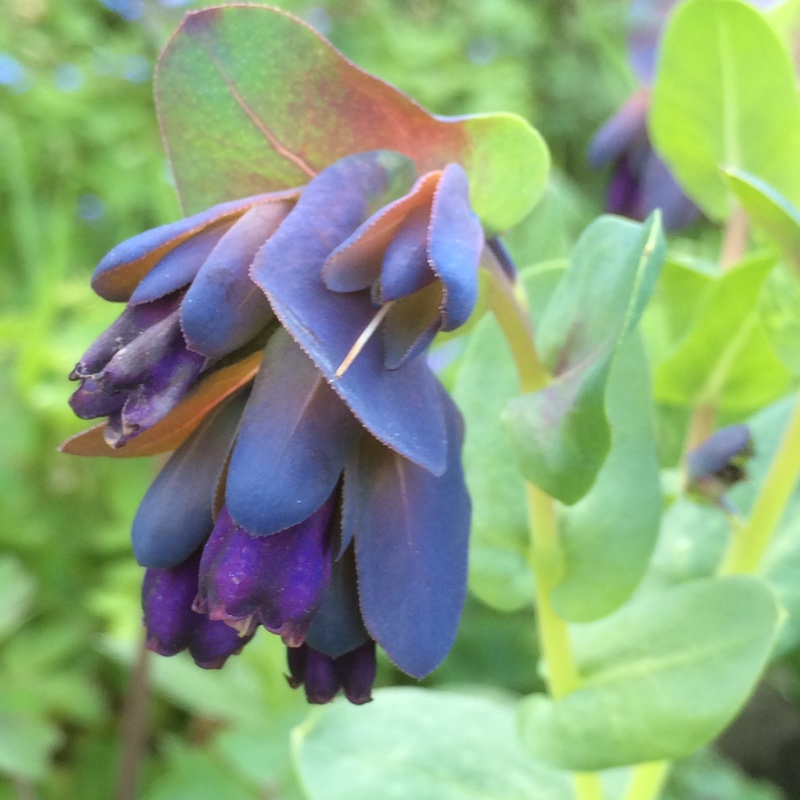
Cerinthe major 'Purpurescens'
Greater Honeywort 'Purpurescens'
Cerinthe (Honeywort) is a plant in the borage family and usually has green or silver grey-green leaves. It can be considered an annual, biennial or perennial but is generally treated as an annual. It produces tubular shaped flowers from coloured bracts. Flower colour varies depending on species and cultivar. It usually prefers to be in a sunny or partial shade position, and likes dry to moderately moist soil providing well drained, again depending on species and cultivar. Cerinthe major 'Purpurascens' (Honeywort) has silvery, pale green leaves with purple hanging bells. It gently self-seeds where planted and is attractive to pollinators. Generally treated as an annual.
Contributed by @tiggrx
-
Full sun to partial shade
-
Occasional watering
-
Full Frost Hardy: 5F (-15°C)
-
Rich and free draining
Common name
Greater Honeywort 'Purpurescens'
Latin name
Cerinthe major 'Purpurescens'
type
Annual
family
Boraginaceae
ph
5.5 - 8.0 Acid - Neutral
Plant & bloom calendar
-
Best time to plant
full grown dimensions
 0.30 M
0.60 M
0.30 M
0.60 M
Cerinthe major 'Purpurescens'
Cerinthe (Honeywort) is a plant in the borage family and usually has green or silver grey-green leaves. It can be considered an annual, biennial or perennial but is generally treated as an annual. It produces tubular shaped flowers from coloured bracts. Flower colour varies depending on species and cultivar. It usually prefers to be in a sunny or partial shade position, and likes dry to moderately moist soil providing well drained, again depending on species and cultivar. Cerinthe major 'Purpurascens' (Honeywort) has silvery, pale green leaves with purple hanging bells. It gently self-seeds where planted and is attractive to pollinators. Generally treated as an annual.
Propagation from Seed
From Mid Autumn TO Early Spring
Under glass, sow shallowly in freely draining compost in mid/late autumn, or early spring. Once the seedlings are large enough to handle, gently move them into individual pots and harden off before planting out in a sunny spot after the frosts. Direct sowing can be undertaken in late spring in a well prepared bed.
Planting Season (Spring)
From Early Spring TO Late Spring
Cerinthe generally thrives in a variety of soils and does best in full sun or very light shade. Cerinthe is most often grown straight from seed but small (plug) plants can often be sourced in spring. These can be planted straight into the growing site once all risk of frost has passed.



























